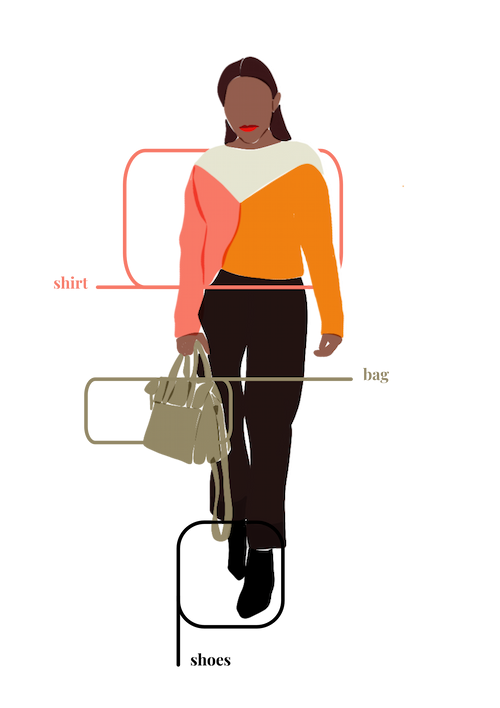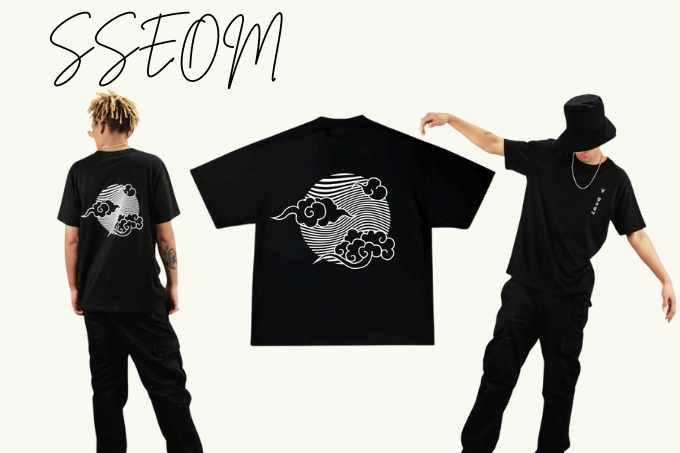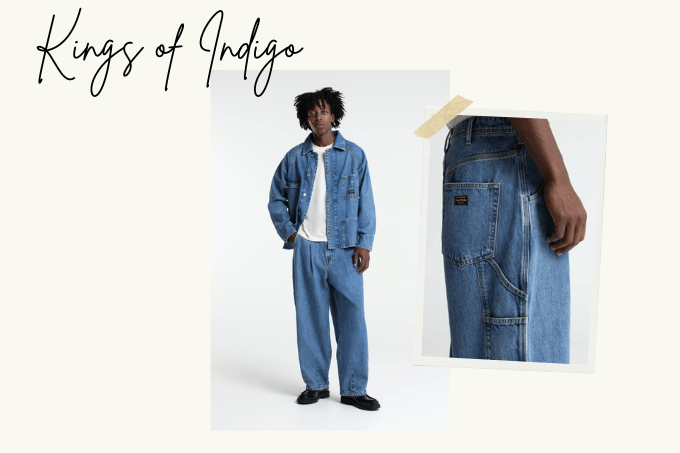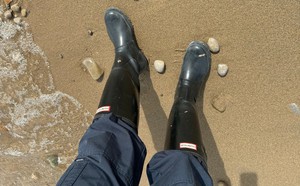- Clothes
- Bags
- Accessories
-
Inspiration
- Shoes
Explainer: What is GOTS and Does it Guarantee Sustainable Fashion?

With so many certificates available in the fashion industry, you almost need a PhD to keep track of what every single one of them means. Although we have a comprehensive list of certificates in sustainable fashion available, it can still be a challenge to remember what each of them stands for.
Today, we’re changing that! In this blog, we zoom in on one of our favourite sustainability certifications in the fashion industry: the Global Standard for Organic Textiles, also known as GOTS. (In our heads, we always have the halo sound whenever we read that and we think it’s a certificate that’s actually THAT good).
So, What Is GOTS? A Global Standard for Organic Textiles
The Global Organic Textile Standard (GOTS) is one of the most widely recognised certifications in the sustainable fashion industry. It was launched in 2006 by a group of international organisations who were looking to unify existing textile standards into one unified, transparent system. GOTS is now one of the most-trusted benchmarks to verify the environmental and ethical credentials of textiles.
Unlike vague “eco-friendly” labels, GOTS sets strict requirements for the entire supply chain involved in making a product: from organic farming to environmentally safe processing and ethical labour practices.
How GOTS Certification Works
Environmental Criteria
There are two levels of GOTS certification:
- GOTS Organic: For this certificate, the product must contain at least 95% certified organic fibres.
- GOTS Made with Organic: For this certificate, the product must contain at least 70% of certified organic fibres.
This means no genetically modified organisms (GMOs), synthetic pesticides or fertilisers are allowed in the cultivation process.
Besides the cultivation, GOTS also sets environmental requirements for the production process:
- Toxic heavy metals, formaldehyde and other harmful substances are prohibited
- Dyes and auxiliaries have to meet strict biodegradability and toxicity standards
- There must be an environmental management system in place to monitor water use, how wastewater is being handled and energy efficiency.
GOTS is active in every stage of the production process and not just in the last stage, like for example, OEKO-TEX.
Social Criteria
GOTS also requires social responsibility standards, including:
- No child labour or forced labour
- Safe and hygienic working conditions
- Responsible labour practices
- Freedom of association and collective bargaining
As we said, these requirements apply to every stage of the production process, from cultivation to manufacturing to labelling.
Supply Chain Transparency
One of the biggest strengths of GOTS is its transparency. Every step, from harvesting raw materials to dyeing, spinning and stitching, is independently verified through annual inspections and on-site audits by third-party certifiers.
When you have an item with a GOTS label, it should include a certification number and the certifier’s name, which allows you to see how each product is made and by whom it's verified. This makes it way harder for companies to greenwash their way out of audits.
What GOTS Guarantees And What It Doesn’t
What GOTS Does Include
GOTS stands for:
- At least 95% of certified organic fibres (70% for GOTS Made with Organic Materials)
- Strictly controlled use of harmful chemicals
- Ethical working conditions
- Transparent auditing for environmental and social responsibility
GOTS is one of the furthest stretching certificates currently out there, because they take the full supply chain into account.
What GOTS Doesn’t Include
However, GOTS is not a catch-all for sustainability. It doesn’t:
- Measure or limit a product’s carbon footprint
- Guarantee animal welfare (for materials like wool or silk)
- Address recyclability, circularity or end-of-life impact
So, GOTS doesn’t automatically make a product fully sustainable as there could still be a huge carbon footprint involved.
Why GOTS Matters when looking for Sustainable Fashion
In this era of widespread greenwashing, GOTS offers a refreshingly credible hook to filter out products that are actually meeting strict environmental and social standards.
The fact that it’s actually putting standards on the full supply chain of a product, rather than just one single aspect, really makes it a certificate we look for when shopping for sustainable fashion.
That being said, having products that are GOTS-certified does not make a brand automatically sustainable. As always in sustainable fashion; it depends on many factors. But looking out for GOTS is a great start!
Our Favourite GOTS-certified clothes
Picking our favourite item from our catalogue is like picking your favourite child as a parent; you simply can’t! Buttt, these are some of the items we have been putting on our wishlists that are GOTS-certified!
The Find Myself Tee from SSEOM - €39
The Edith Dress from Bhoomi - €190
The blouse shirt from Lanius - €79,90
The Sabium pants from Kings of Indigo - €165
Curious to learn more about the GOTS certificate? They actually provide a full overview page called behindtheseams. Beautifully designed and a tip to check out!
Share our story
Related articles
Fast Fashion: TikTok Made You Buy It (& Trapped You in a Cycle)
The dangerous correlation between TikTok and fast fashion overconsumption—and how you can break free, without deleting your favourite app
Mindful Living During Chaotic Times: 9 Ways to Find Calm
Yes, it feels like the world’s on fire, but that doesn’t mean you must keep frying your nervous system. Here’s what helps me ground myself (& stay sane).
Is Rubber Sustainable? (You Might Be Wearing… Plastic!)
Not all rubber is natural, and not all natural rubber is eco-friendly. Here’s how to make ethical choices for your wardrobe.
Project Cece is a platform that collects ethical fashion from vetted brands and shops in one place. Browse ethical fashion for women and men and find items that fit your style, budget and values!







